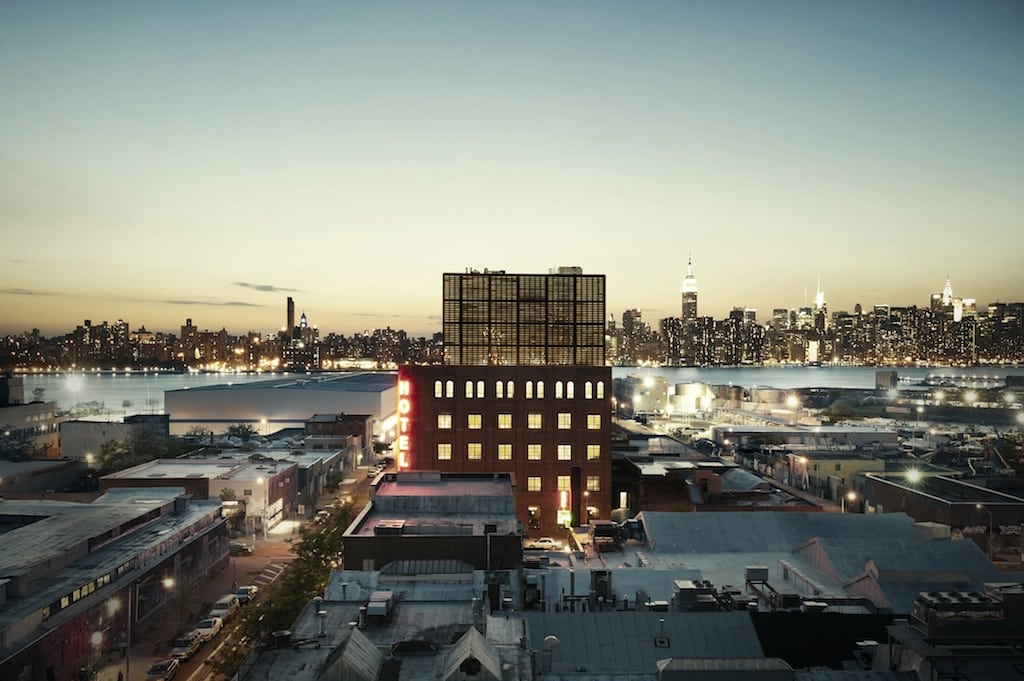Skift Take
Small hotels can thrive, even in big cities, given the right level of service and a strong core of returning customers.
Over the past three years, the Wythe Hotel has grown its reputation through word of mouth and by providing a safe haven for international creatives in Brooklyn.
The 70-room hotel opened in early 2012, when it launched as a partnership between Australian hotelier Peter Lawrence, experienced New York restauranteur Andrew Tarlow and property developer Jed Walentas. Since then, the hotel has become a touchstone among business travelers and European tourists looking to explore the high-profile Brooklyn neighborhood of Williamsburg.
“When we built it, we knew there was demand for a Brooklyn-flavored hotel,” said Lawrence, general manager of the Wythe Hotel. “We completely underestimated how much demand there really was.”
Today, the hotel runs consistently above 90 percent occupancy and room rates are high. The Ides, its rooftop bar with a Manhattan skyline view, and hotel restaurant Reynard are popular with both locals and tourists alike.
“At first we were an international destination, which was lovely, but now there are all these other layers of people travelling more locally to this spot,” said Lawrence. “We have an entirely international [hotel] clientele; that’s slowed a little bit, of course, as the dollar has strengthened against the Euro.”
The hotel does barely any marketing, besides sparse posts on Instagram and local promotions offering cheap rates to neighborhood dwellers looking to spend a night away from home.
While the hotel has a staff member in charge of social media, Lawrence doesn’t think its necessary for a hotel with the Wythe’s value proposition to be extremely visible online. He says big brands adore social media because it is so measurable, but a small hotel doesn’t need to devote resources to online marketing if it’s taking care of customers properly.
“For the most part, we’re a business hotel,” said Lawrence. “It just happens that most of the business people that stay with us are in creative fields one way or another.”
On the technology front, the hotel has focused on providing strong security to attract high-profile guests.
“The operational technology that’s available for the money is an amazing help to running a small business like this,” said Lawrence. “Ten years ago, you had to invest $100,000 dollars. These days, you can do all of that for pennies and have complete control over it, not be sharing any revenue with any of those other big [hospitality technology providers].”
Lawrence has retained most of his original staff from the hotel’s opening. Returning visitors are crucial to the property’s business, especially since its select-service model doesn’t offer the same luxury amenities of many New York hotels.
“Whether guests are coming from Europe or they’re coming from other parts of America, they enjoy that there are genuine humans here,” said Lawrence.
He thinks properties like The Dean Hotel in Providence, R.I., are an example of the future of small-scale hospitality and a movement away from the impersonal feel of major hotel brands.
“People are now thinking about putting 27, 50 rooms or 150 rooms in a place like Rhode Island, or San Jose, or Hudson, N.Y.,” said Lawrence. “Before [hoteliers] felt they had to hit all the generic points so you don’t upset anybody and make the most of your small market. That’s not the way to succeed now; just do something awesome.”
Have a confidential tip for Skift? Get in touch
Tags: brooklyn
Photo credit: The Wythe Hotel. Matthew Williams
